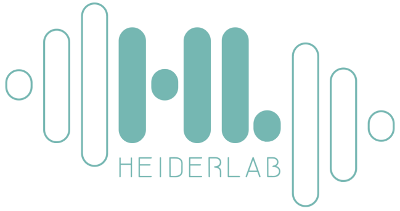CORona Drug InTEractions database
Predicting commercially available antiviral drugs that may act on the novel coronavirus (2019-nCoV), Wuhan, China through a drug-target interaction de
Bo Ram Beck, Bonggun Shin, Yoonjung Choi, Sungsoo Park, Keunsoo Kang
Abstract
The infection of a novel coronavirus found in Wuhan of China (2019-nCoV) is rapidly spreading, and the incidence rate is increasing worldwide. Due to the lack of effective treatment options for 2019-nCoV, various strategies are being tested in China, including drug repurposing. In this study, we used our pretrained deep learning-based drug-target interaction model called Molecule Transformer-Drug Target Interaction (MT-DTI) to identify commercially available drugs that could act on viral proteins of 2019-nCoV. The result showed that atazanavir, an antiretroviral medication used to treat and prevent the human immunodeficiency virus (HIV), is the best chemical compound, showing a inhibitory potency with Kd of 94.94 nM against the 2019-nCoV 3C-like proteinase, followed by efavirenz (199.17 nM), ritonavir (204.05 nM), and dolutegravir (336.91 nM). Interestingly, lopinavir, ritonavir, and darunavir are all designed to target viral proteinases. However, in our prediction, they may also bind to the replication complex components of 2019-nCoV with an inhibitory potency with Kd < 1000 nM. In addition, we also found that several antiviral agents, such as Kaletra, could be used for the treatment of 2019-nCoV, although there is no real-world evidence supporting the prediction. Overall, we suggest that the list of antiviral drugs identified by the MT-DTI model should be considered, when establishing effective treatment strategies for 2019-nCoV.
Source: BioRxiv
Related molecules
Related interactions
| Target | Target affiliation | Drug | Type | Result |
|---|---|---|---|---|
| Target | Target affiliation | Drug | Type | Result |
| Name | Synonyms | Genes | Origin |
|---|---|---|---|
| Name | Synonyms | Genes | Origin |
| Name | Synonyms | PubChem | DrugBank | RCSB PDB | ATC |
|---|---|---|---|---|---|
| Name | Synonyms | PubChem | DrugBank | RCSB PDB | ATC |
| Title | Authors | DOI | Source | Article type | Date |
|---|---|---|---|---|---|
| Title | Authors | DOI | Source | Article type | Date |
| Title | Status | Phases | Start Date | Prim. Comp. Date | Comp. Date | First Post. Date |
|---|---|---|---|---|---|---|
| Title | Status | Phases | Start Date | Prim. Comp. Date | Comp. Date | First Post. Date |
CORDITE (CORona Drug InTEractions database) collects and aggregates data from PubMed, MedRxiv, BioRxiv, ChemRxiv and PMC for SARS-CoV-2. Its main focus is set on drug interactions either addressing viral proteins or human proteins that could be used to treat COVID. It collects and provides up-to-date information on computational predictions, in vitro, as well as in vivo study data.
The information provided is for research only and we cannot guarantee the correctness of the data.
Please contact dominik.heider@uni-muenster.de for further information.
Programmable access
There is an open API for access programmatically to the database. The API will print a JSON output:
- Interactions
https://cordite-api.uni-muenster.de/api.php?action=list&table=interaction
- Targets
https://cordite-api.uni-muenster.de/api.php?action=list&table=target
- Drugs
https://cordite-api.uni-muenster.de/api.php?action=list&table=drug
- Publications
https://cordite-api.uni-muenster.de/api.php?action=list&table=publication
- Clinical trials
https://cordite-api.uni-muenster.de/api.php?action=list&table=clinical_trial

